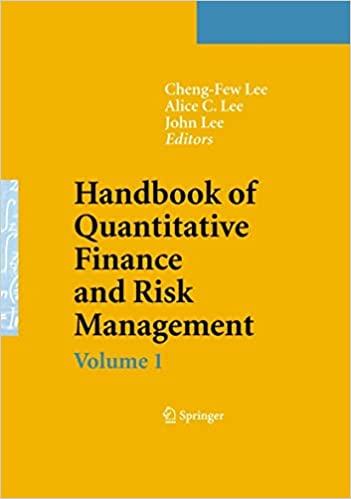Question 1. Consider European options on a non-dividend-paying stock currently trading at $65.39. The continuously compounded risk-free interest rate is 3.75%, volatility of the stock
Question 1. Consider European options on a non-dividend-paying stock currently trading at $65.39. The continuously compounded risk-free interest rate is 3.75%, volatility of the stock is 39.50% per year, and time to maturity is 3 months (assume 3 months is equal to 90 days).
Find the value of a call option at the exercise price of $67.00 using the Black-Scholes option pricing model. Show all the steps. (6)
Find the value of a put option at the exercise price of $65.00 using the Black-Scholes option pricing model. Show all the steps. (6)
Show that put-call parity holds at the exercise price of $66.00. (The value of both sides of the put-call parity should be found to answer this.) (14)
Question 2. Consider the same options as in question 1 and answer the following.
Find the values of Delta for call and put options at the exercise price of $67.00. (5)
Using just delta, what would be the change in the price of the options if the price of the underlying stock decreases by $0.50? (5)
Briefly explain why the value of delta for a long call is between 0 and 1. (4)
Find values of Theta for for call and put options at the exercise price of $67.00. (6)
What is the effect of theta on a long call option? (2)
Step by Step Solution
There are 3 Steps involved in it
Step: 1

See step-by-step solutions with expert insights and AI powered tools for academic success
Step: 2

Step: 3

Ace Your Homework with AI
Get the answers you need in no time with our AI-driven, step-by-step assistance
Get Started


